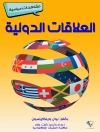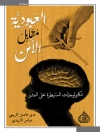Whether understood as a long-run historical process or an intentional political project, international development transforms not only societies and economies but also key ideas about how the world works and how problems should be solved.
In this compelling book, Michael Woolcock demonstrates that achieving peace and prosperity for all is supremely contingent and often contentious: the means and ends of development are often perceived as alien, unjust, and disruptive, its benefits and costs unequally borne. Many development challenges are not technical problems amenable to an expert’s solution, but require extensive deliberation to find and fit context-specific responses. Woolcock insists that it is each generation’s challenge to find shared, legitimate, and durable solutions to the moral imperative to reduce human suffering while simultaneously redressing the challenges that development success (let alone failure) inexorably brings.
This skillful guide will be essential reading for students and practitioners working in this complex field, and for anyone seeking to help ‘make the world a better place.’
Содержание
Prelude — An Invitation…
Chapter 1 — Navigating Our Diverging, Integrated World: The Three ‘Developments’
Chapter 2 — Managing a Contentious World: Cooperation, Inclusion, Process Legitimacy
Chapter 3 — Building a Better World: Why Some Problems Are So Much Harder Than Others
Chapter 4 — Engaging an Increasingly Complex World: From What We Have to What We Need
Epilogue — Putting Your Time, Talents, and Treasure to Work (for Others)
Об авторе
Michael Woolcock is Lead Social Scientist in the Development Research Group at the World Bank, and an Adjunct Lecturer in Public Policy at Harvard Kennedy School.












